|
This site is being discontinued
Please click here to go to our new website
Academy Activies include
Annual Academy Picnics - Field Trips - Lunch Speakers/Presentations - Monthly Movies - Fundraisers - Internships
PUMPKIN SOCIAL 2019


Click here to see the Academic Picnic Video
SOPHOMORE SOCIAL 2019

AMGEN WORKSHOP 2018
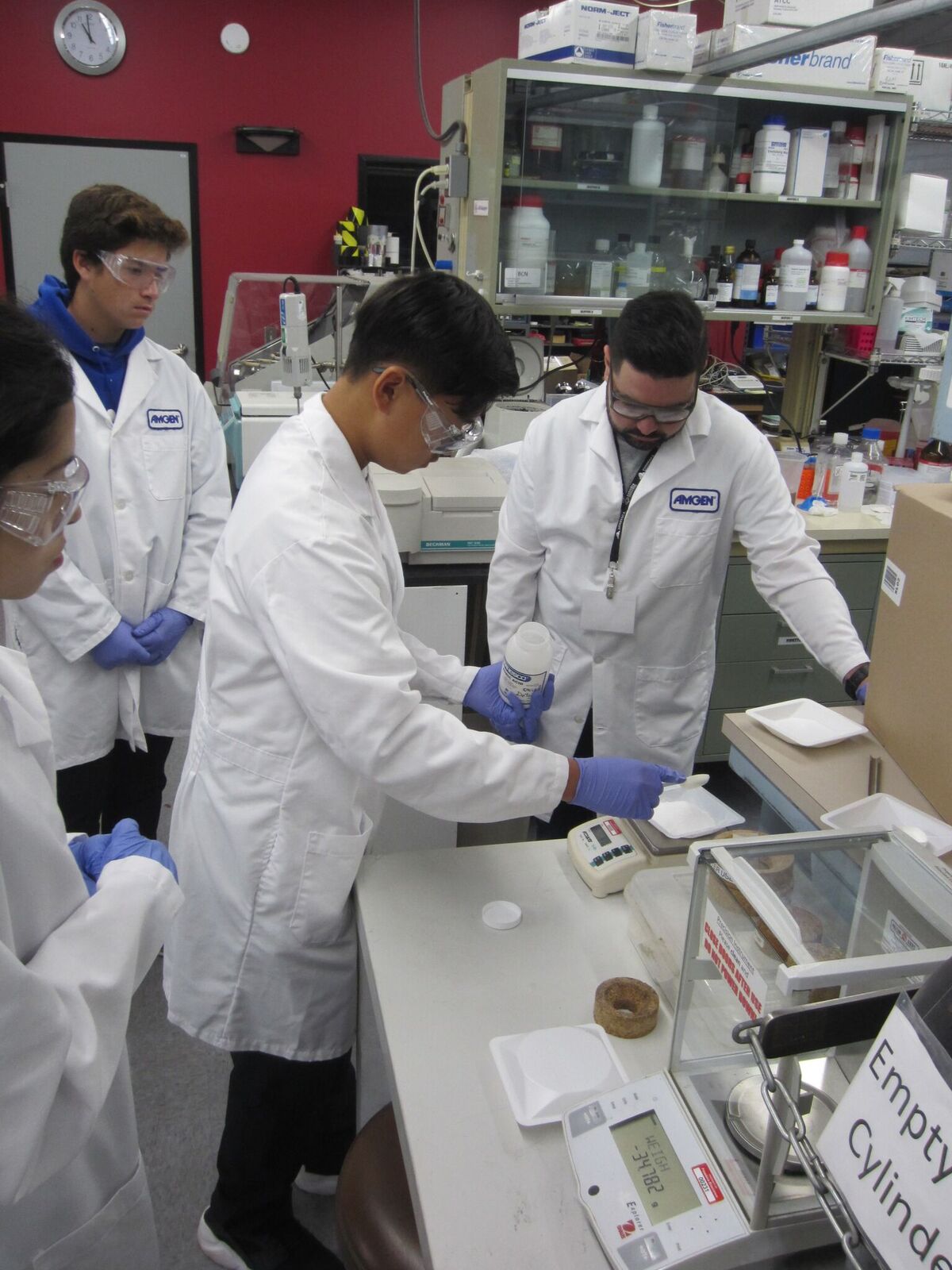 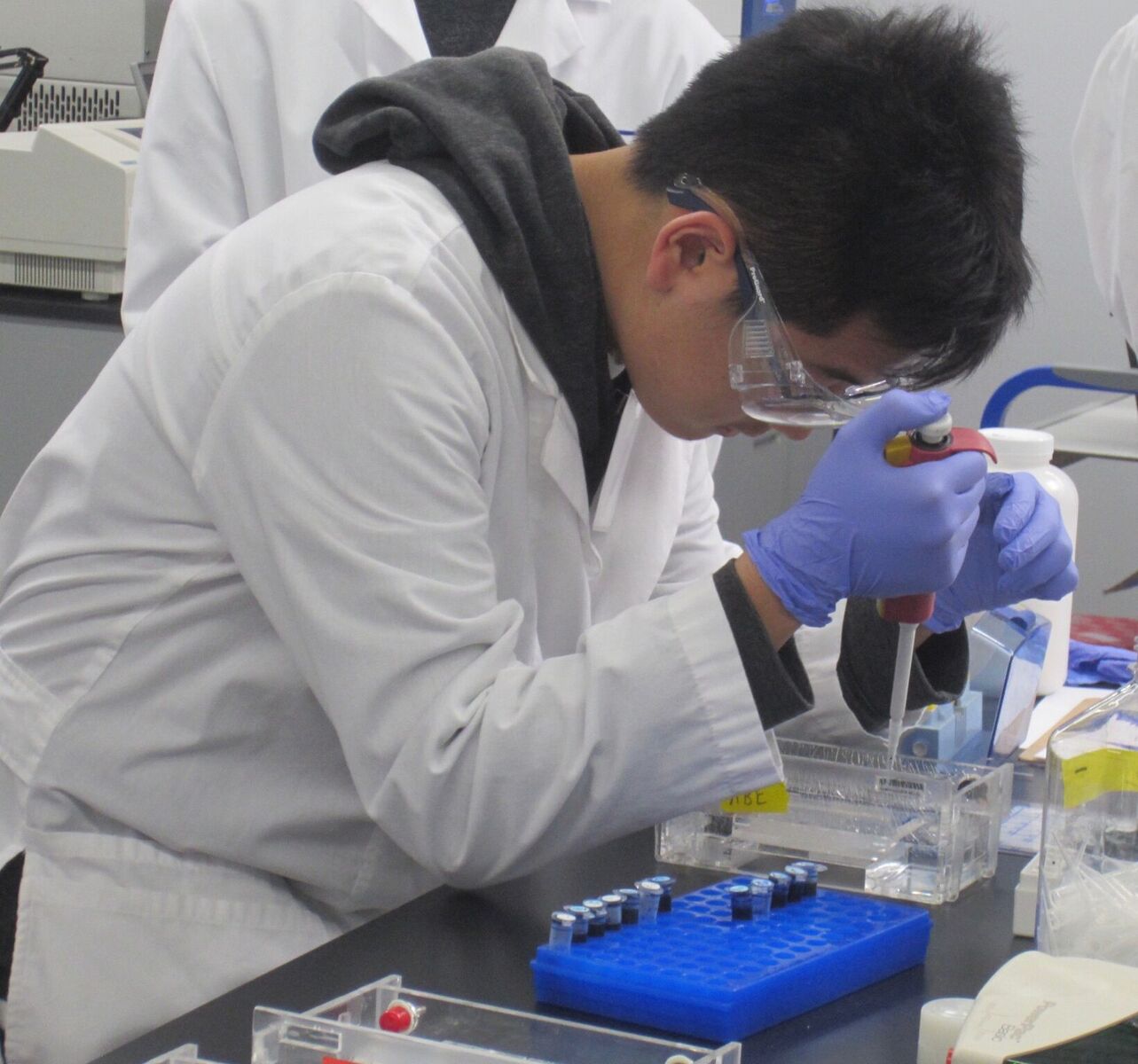 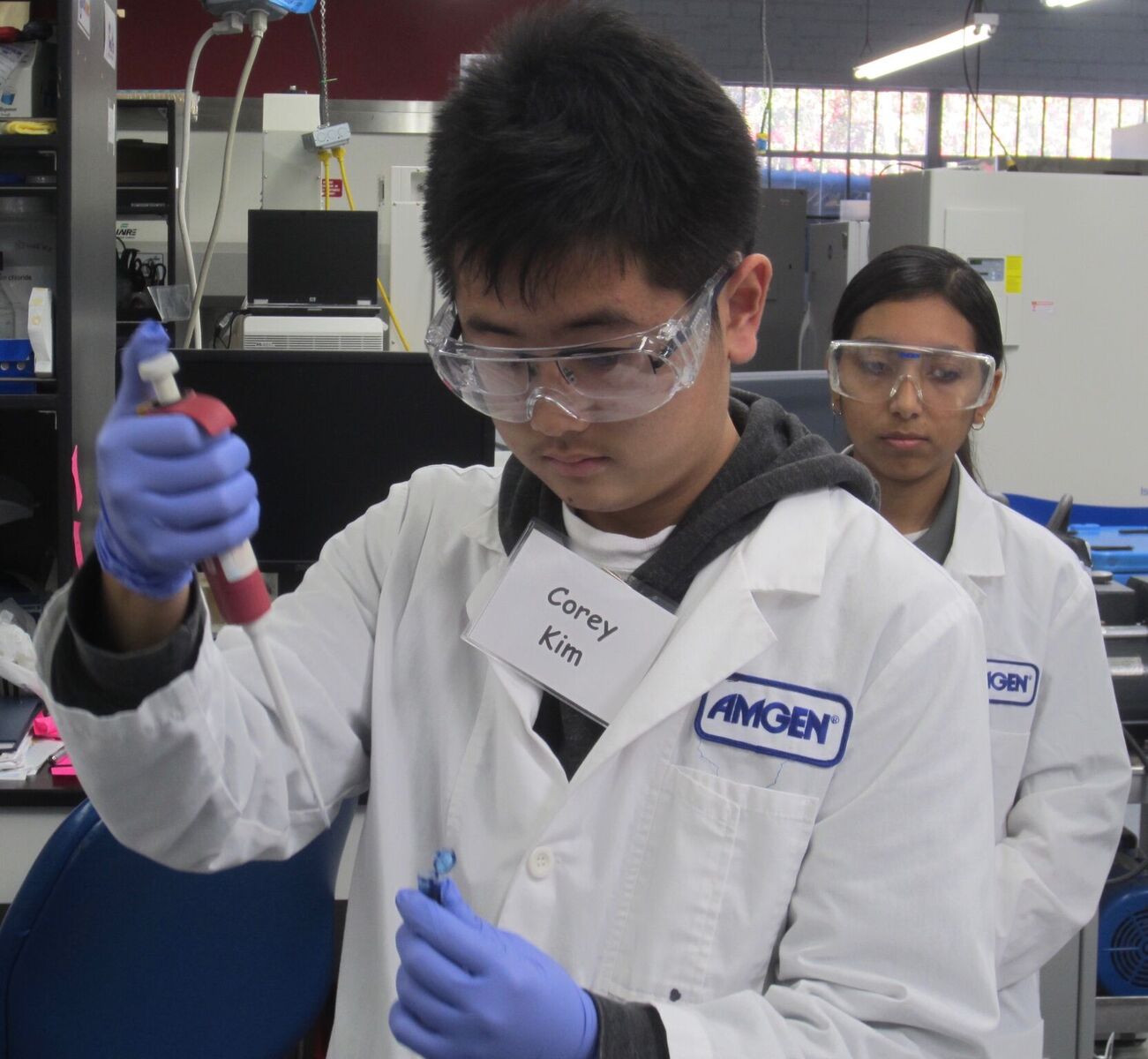 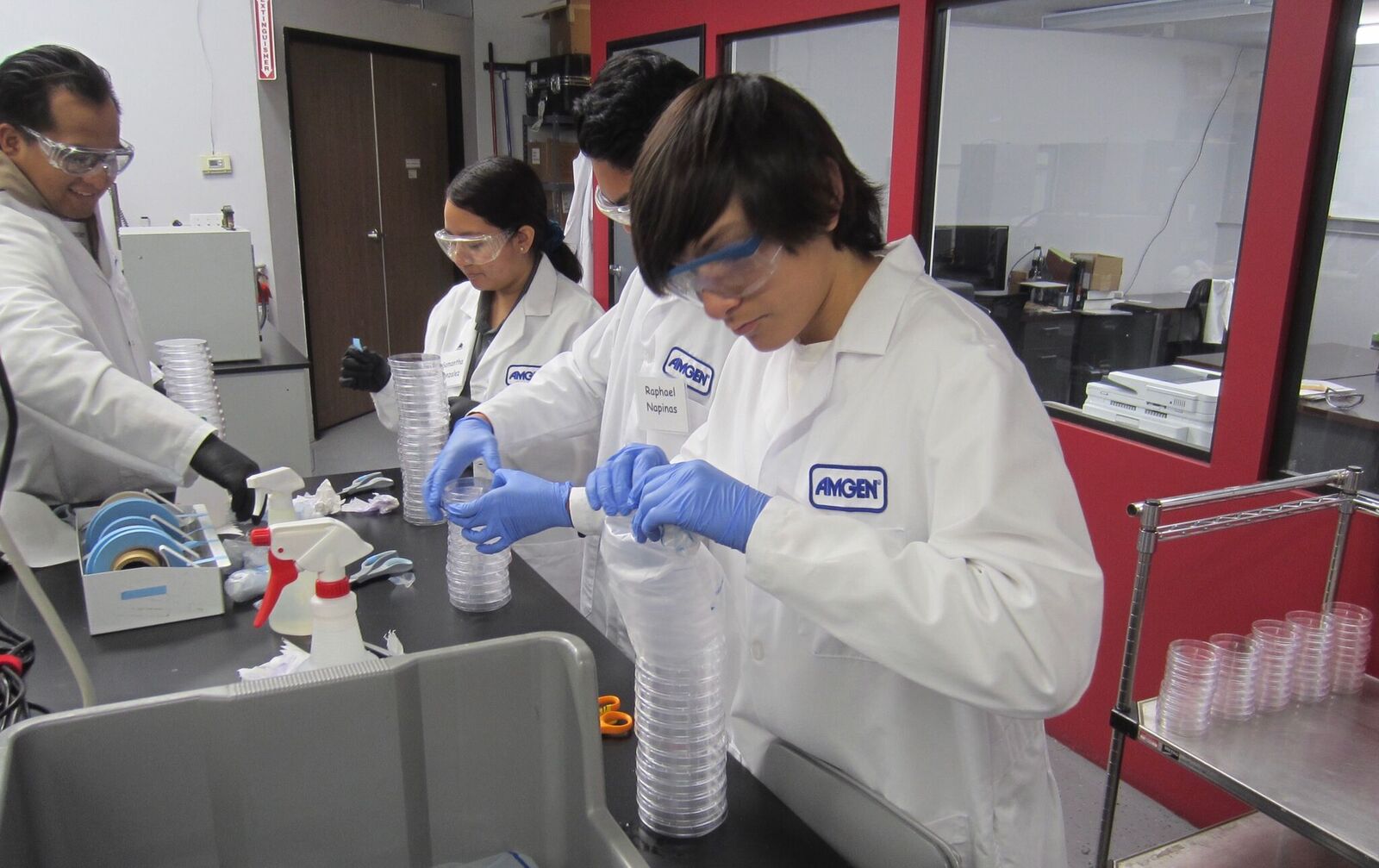 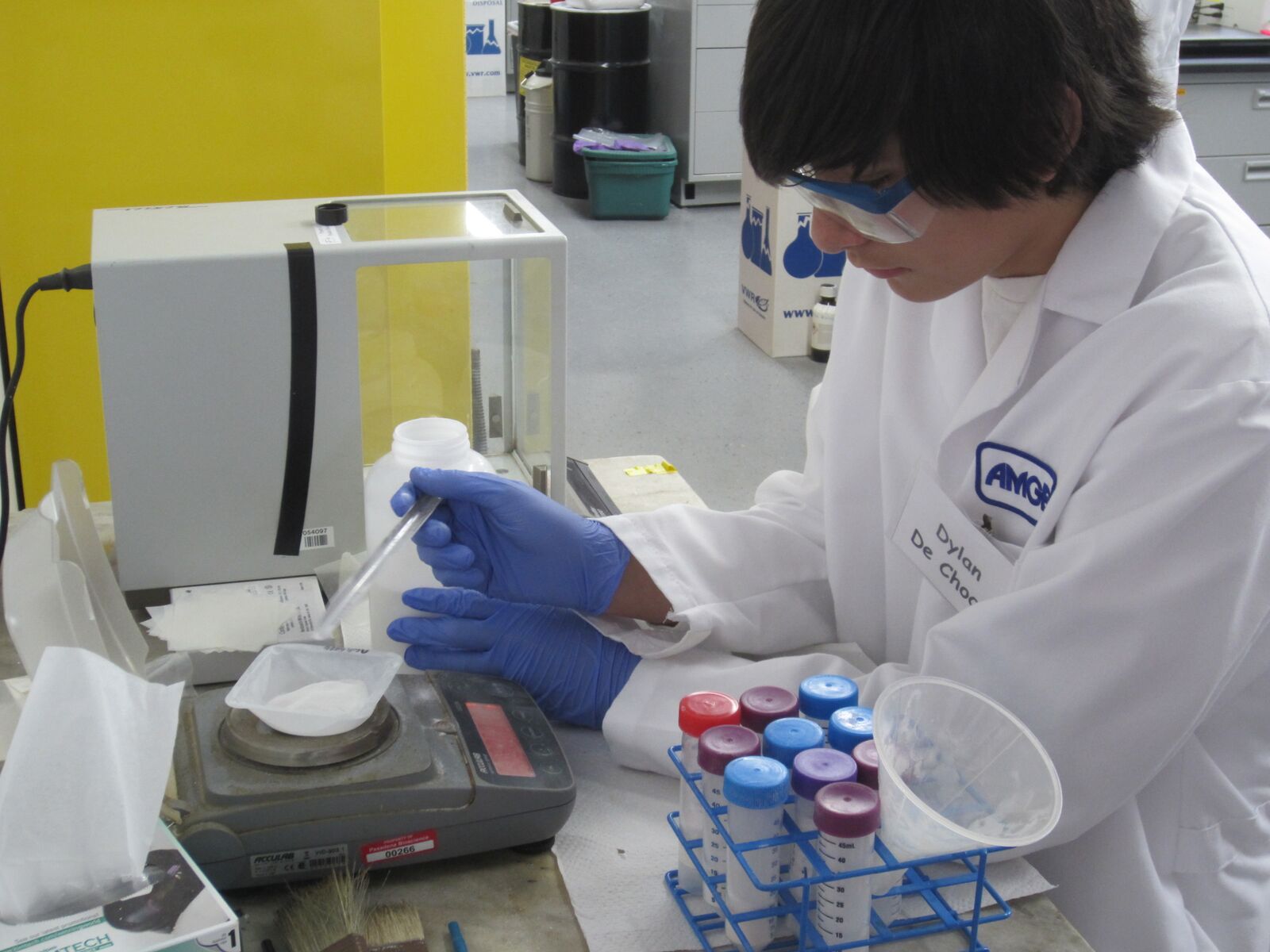 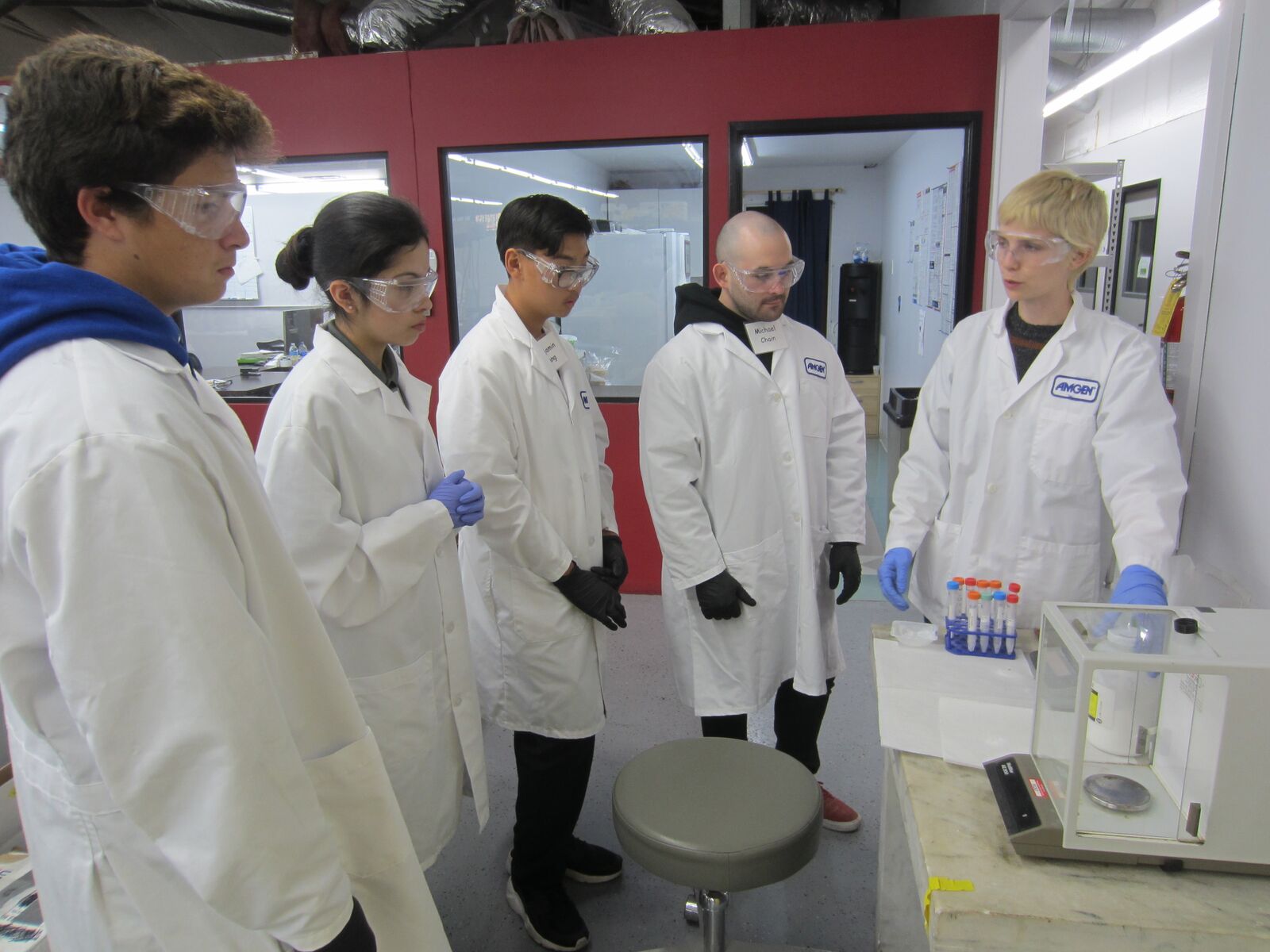 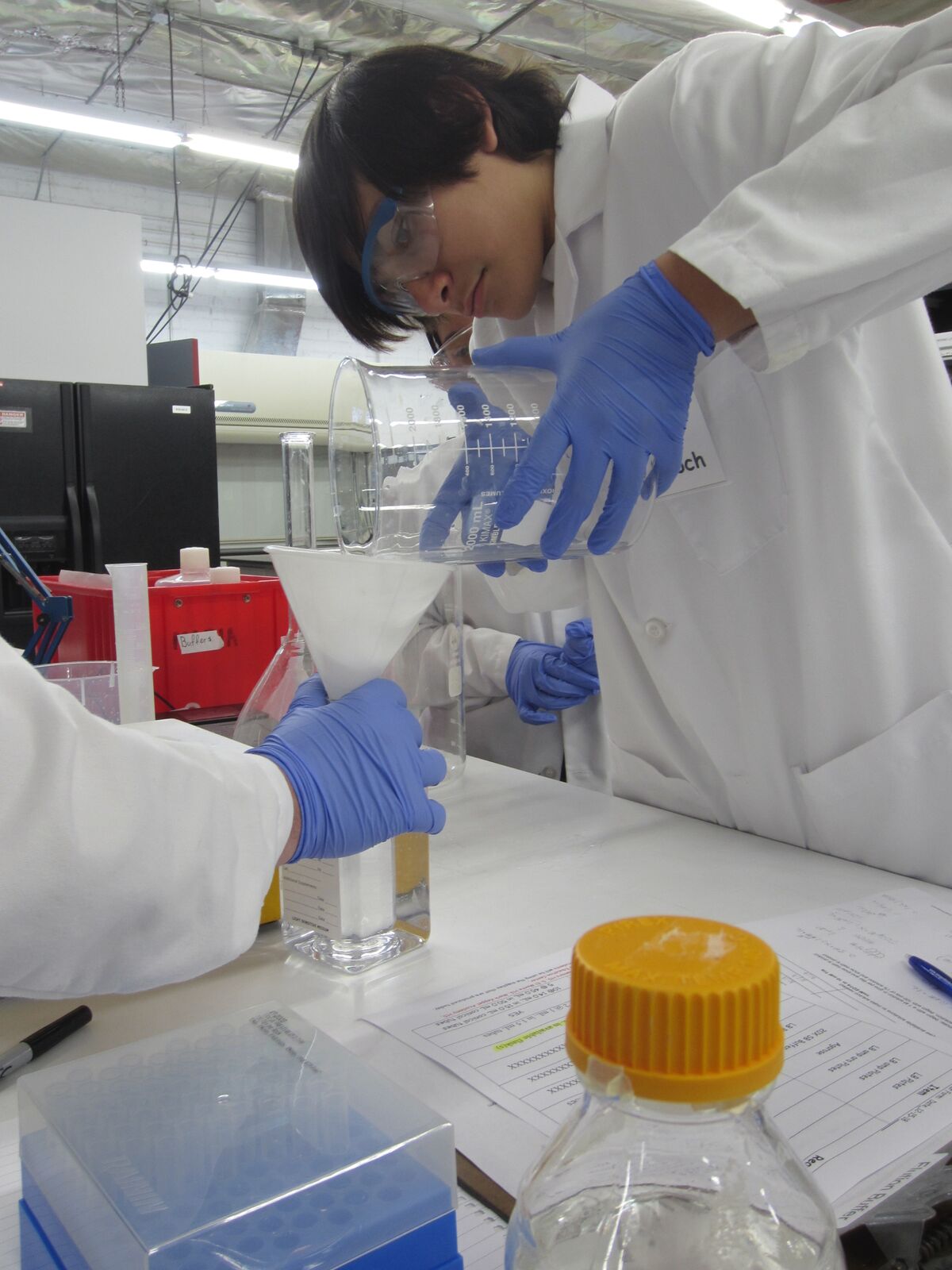 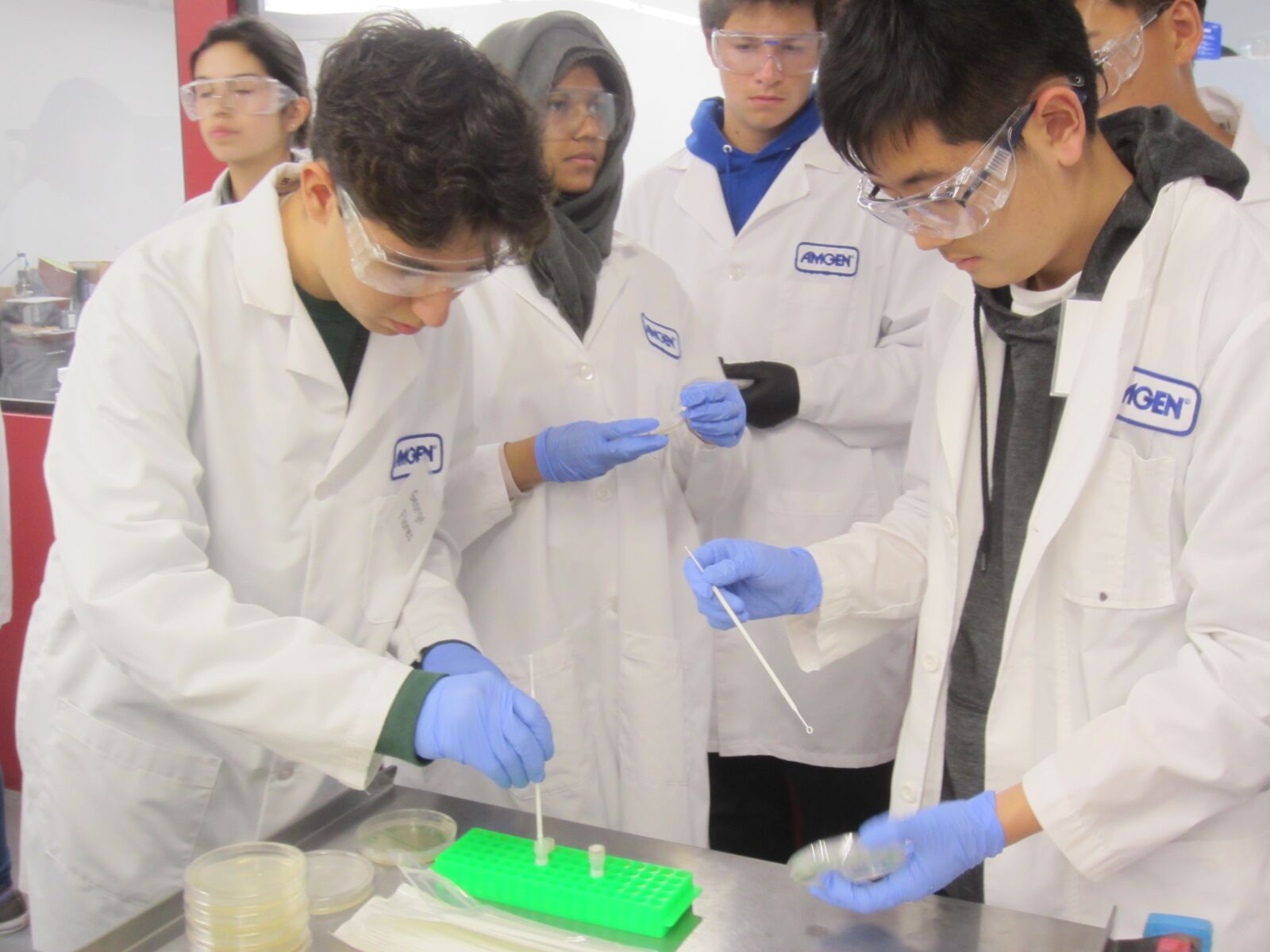 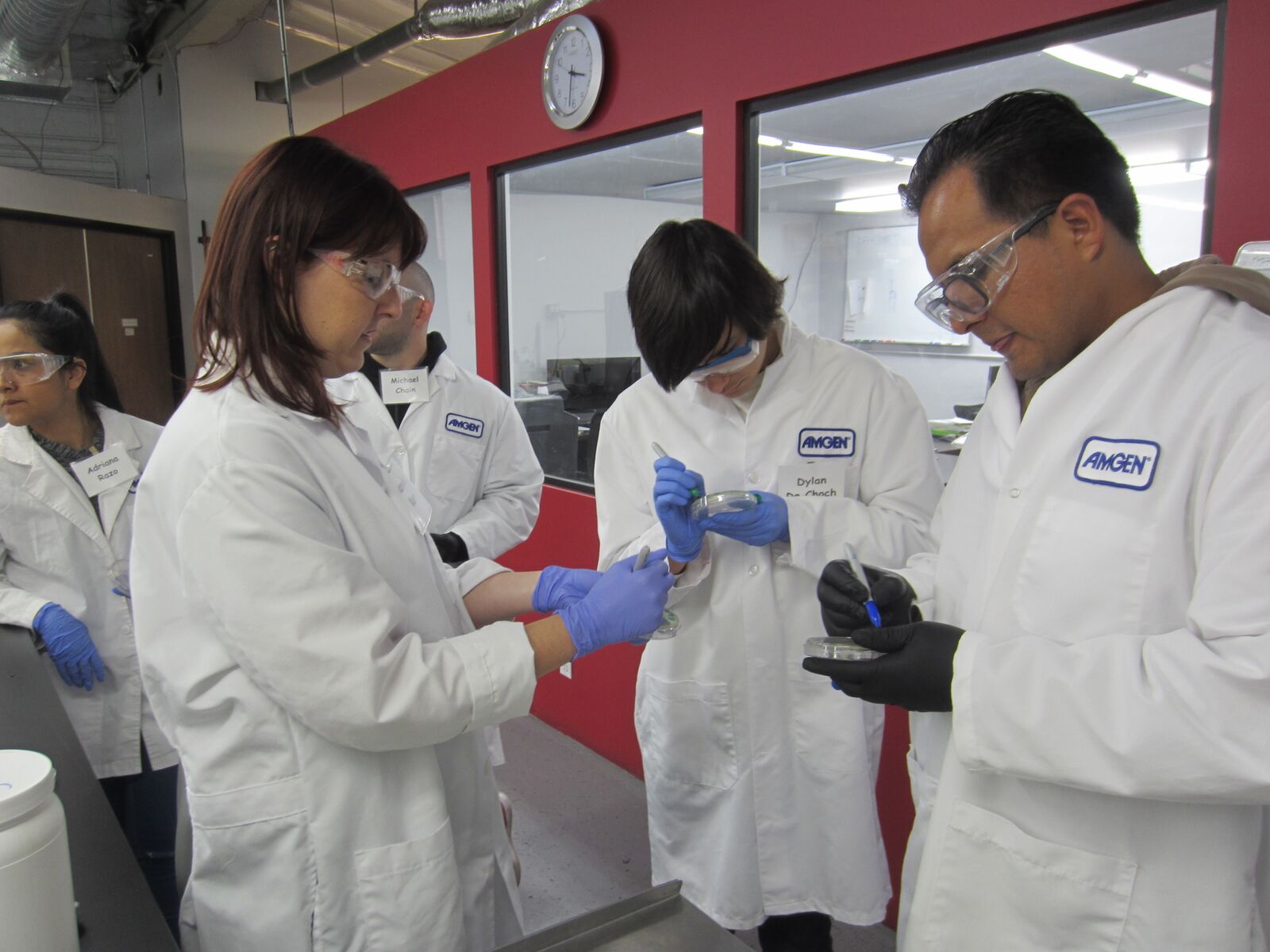 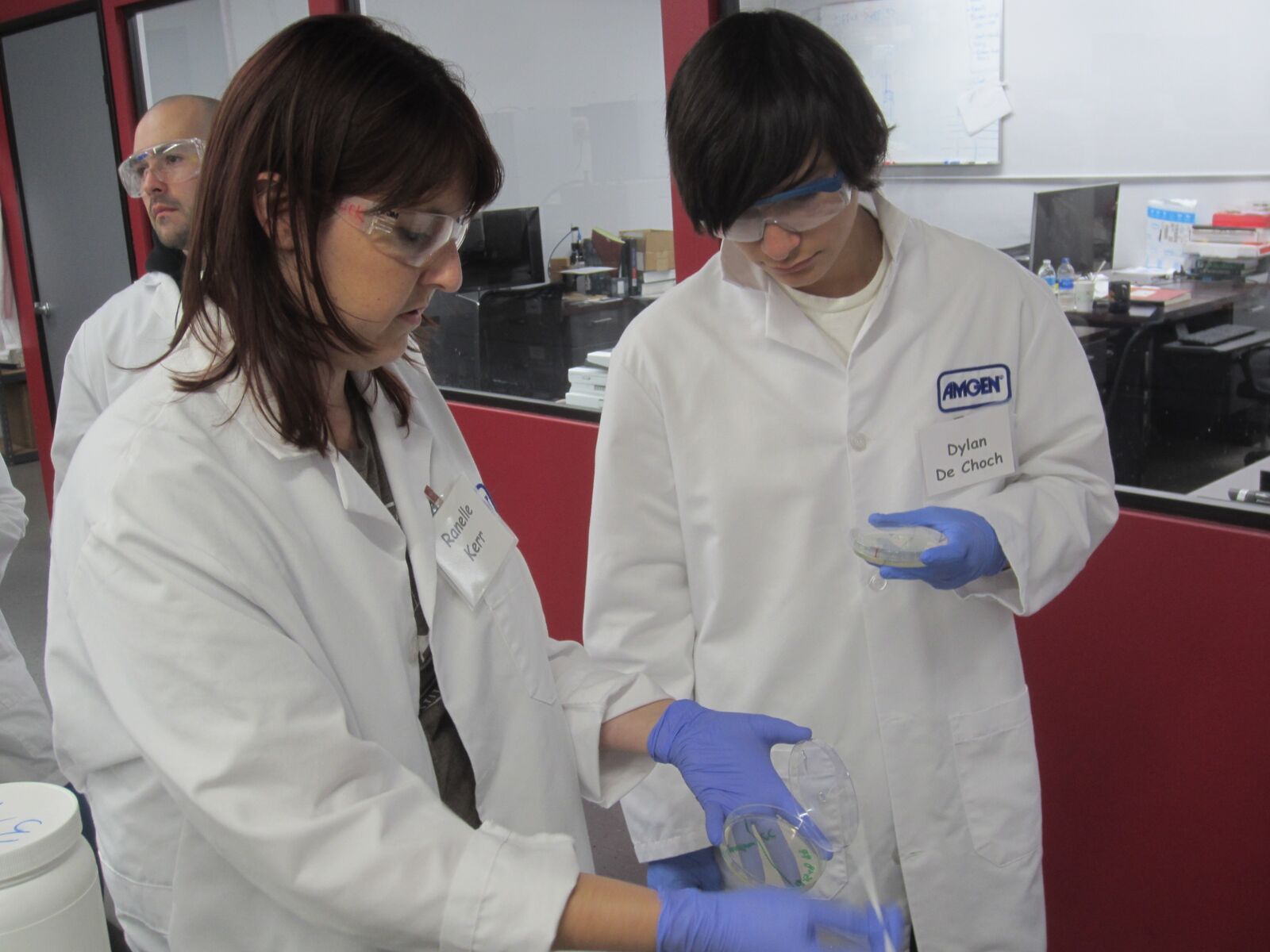 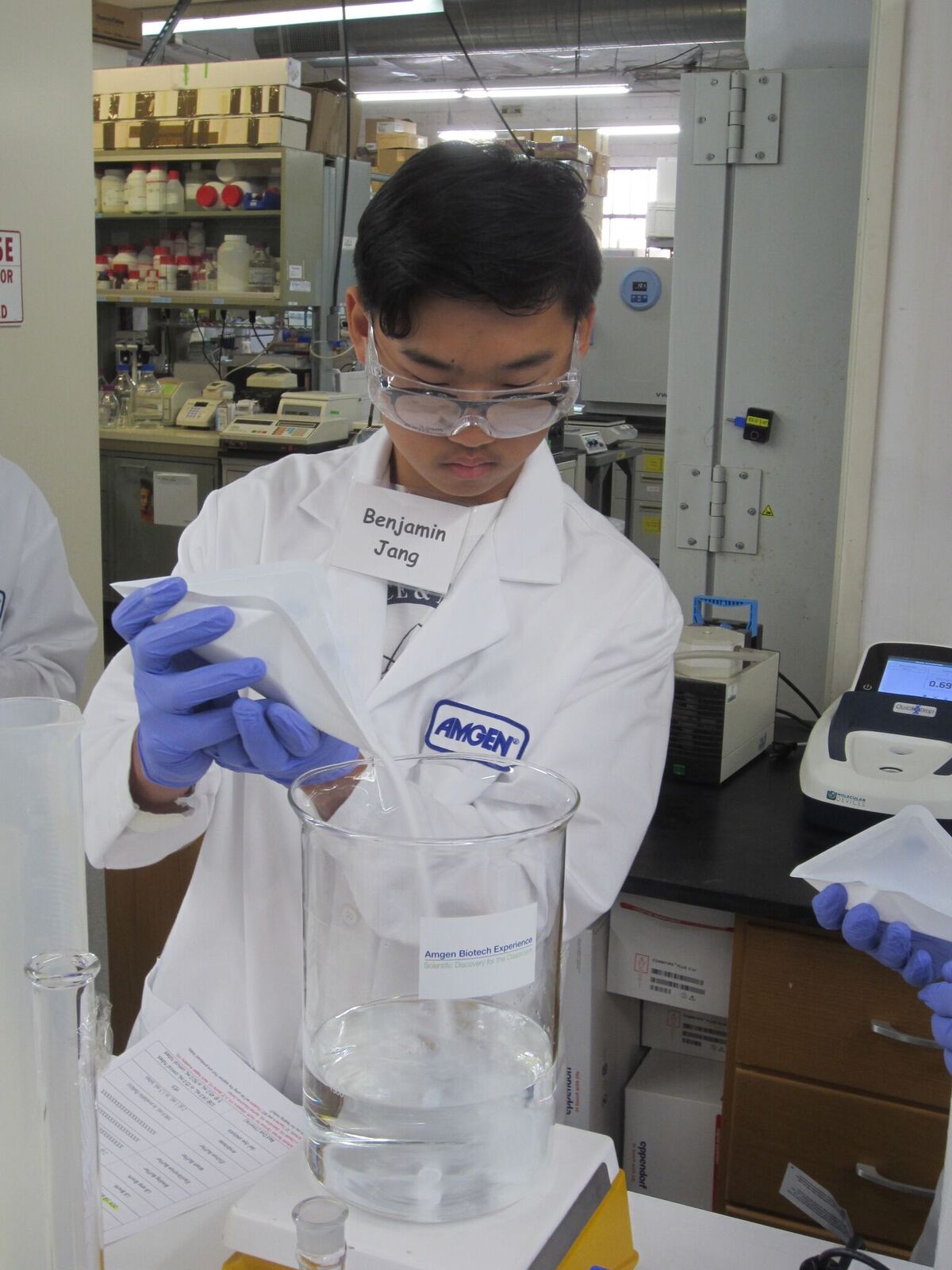 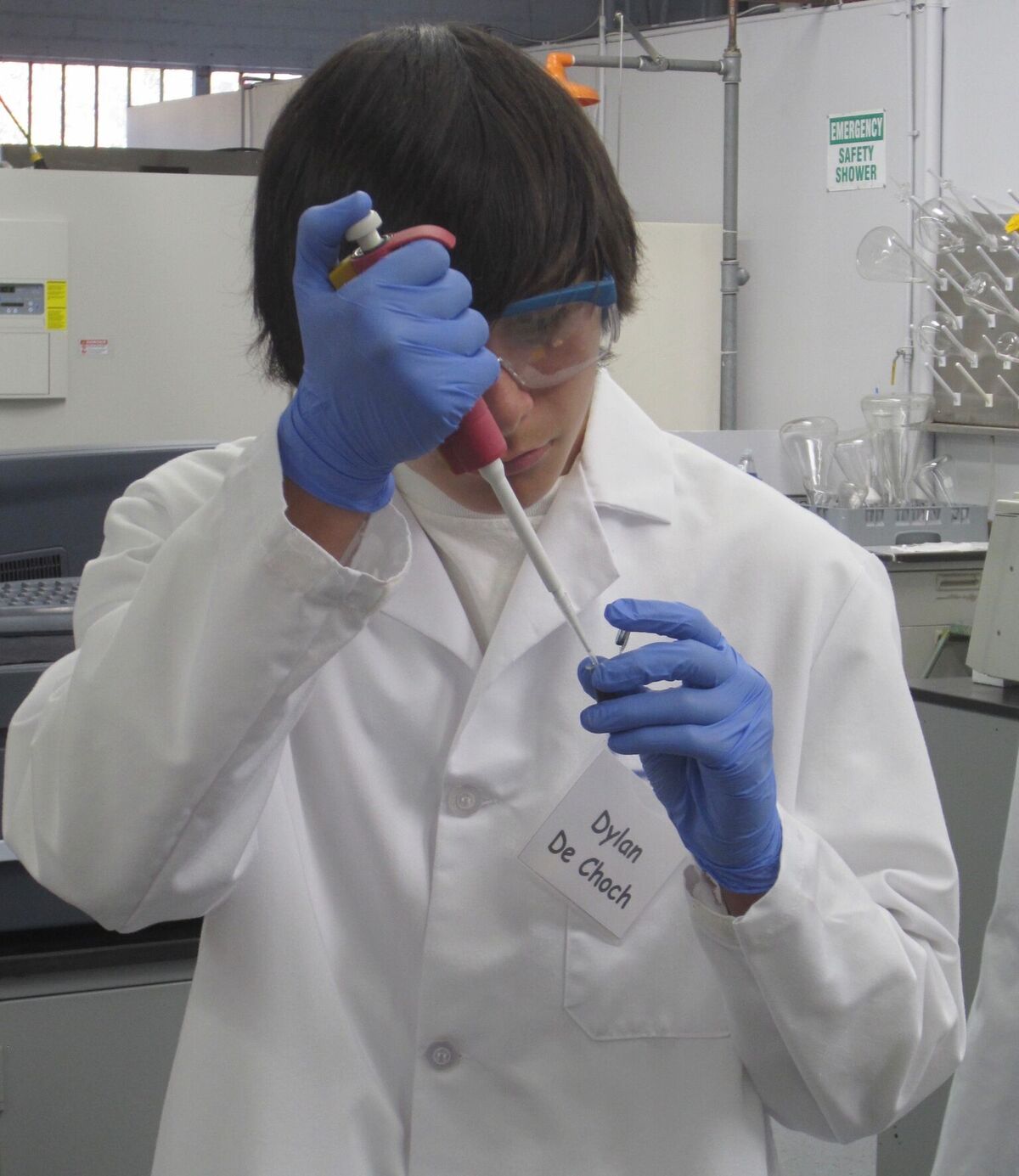
DISASTER DRILL 2018


 
ACADEMY PICNIC 2018
     
Science Bowl 2018
 
DISASTER DRILL 2017
   
BioBuilder Workshop - February 23-24, 2013
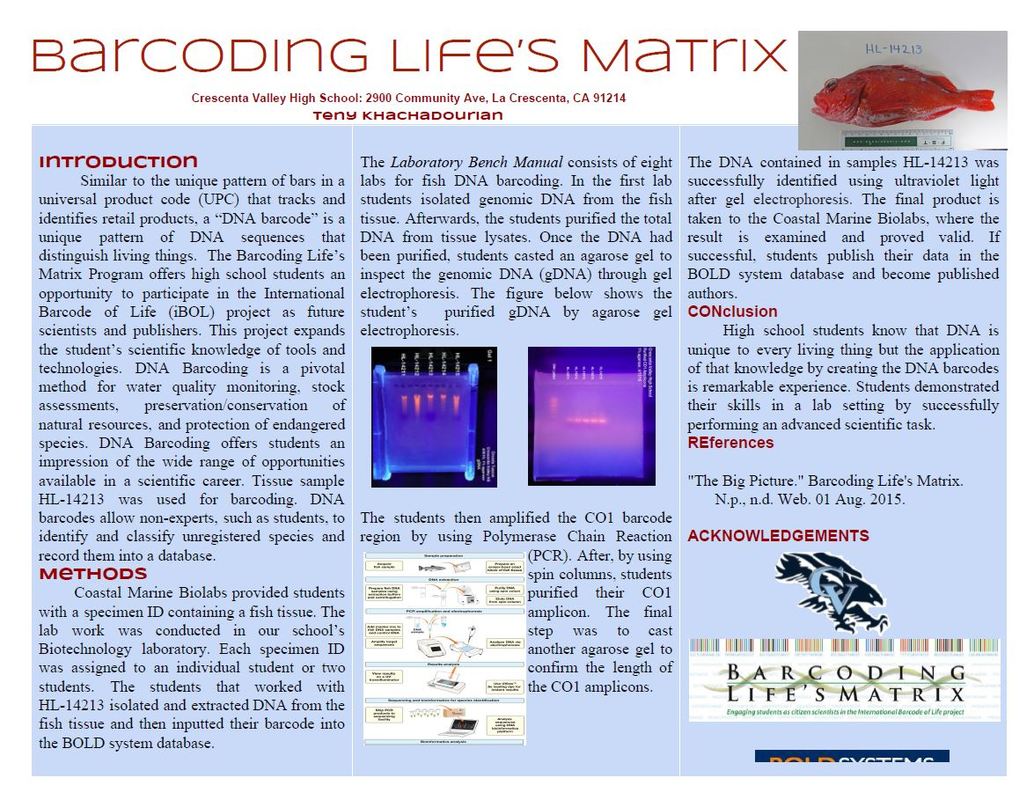
Engineering Biology into High School Classrooms
Written by Natalie Boyd
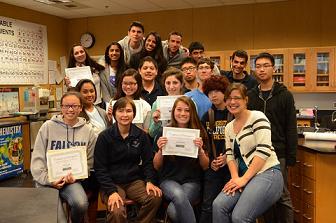 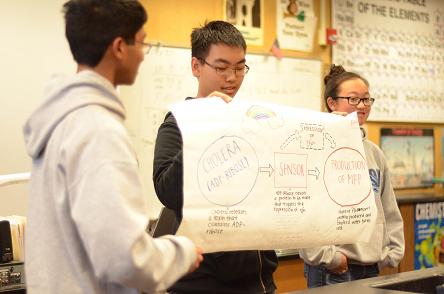
Eighteen members of the Science and Medicine Academy at Crescenta Valley High School gathered with AP Biology students from four other high schools across Southern California to learn more about the emerging field of synthetic biology. Synthetic biology, a discipline that has developed at the crossroads of two seemingly disparate subjects, engineering and molecular biology, has been growing rapidly and gaining much recognition in recent years. The show has only just begun, however. Many researchers point to the example of artemisinin, an anti-malaria drug whose production was made practical by methods developed by synthetic biology researchers at the University of California, Berkeley, as an indication of the potential of this field. Berkeley has proven itself to be one of several leaders in synthetic biology.
 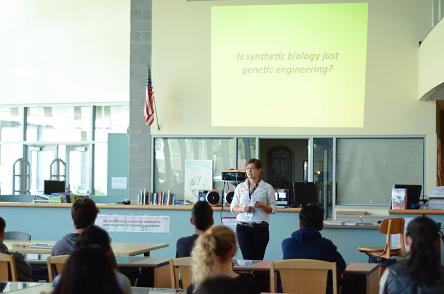
Berkeley post-doctoral scholar Dr. Katie Hart, student director of education and outreach at the Synthetic Biology Engineering Research Center (SYNBERC), presented numerous concepts to students at this weekend’s workshop. Teachers as well as students were excited by the prospect of learning more about synthetic biology, which is sure to be a key player in the biotechnology revolution. “engineering and molecular biology aren’t two subjects that usually go together,” says Orenda Tuason, the AP Biology teacher at Crescenta Valley High School who organized the workshop, which was hosted by Patty Compeau of La Canada HS. “But when you apply engineering principles such as abstraction to biology, it produces some remarkable results.”
 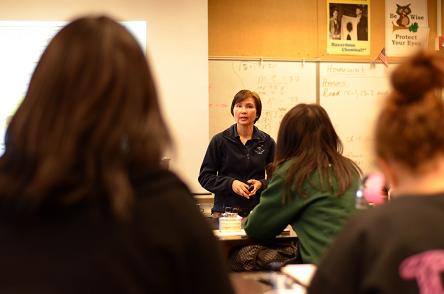
Tuason, a clinical microbiologist and electrical engineer who has served as the coordinator of the Academy of Science and Medicine at CV since 2004, teaches a Biotechnology class that includes content discussed at the workshop. She organized the event which included lectures as well as hands-on laboratory activities, to enrich the textbook-centered curricula typical of most high school biology classes. “I want to give these students the opportunity to gain practical knowledge that most of us were not exposed to until we had entered college,” she says. Tuason hopes that students were encouraged by the success by the experiments they conducted to pursue a career in the biological sciences. The organization that created the material used at the workshop, BioBuilder, was created in 2007 by Dr. Natalie Kuldell, a professor at the Massachusetts Institute of Technology. Dr. Kuldell worked with Drew Endy at Stanford University and many other professors and teachers from across the country to bring real-world discoveries in synthetic biology to high school classrooms. Dr. Bernice Filerman, a biology teacher at Bell Gardens High School, hopes to incorporate the material she and her students learned at the event into the curriculum for the Applied Biology class she teaches. She and other teachers look forward to making topics such as biosensors more accessible to high school students in Southern California and beyond.
63rd Annual Los Angeles County Science and Engineering Fair - March 2013
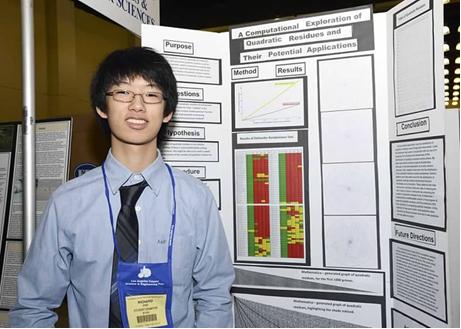 
Academy Seniors Richard Cho and Easun Arunachalam participated in the 63rd Annual Los Angeles County Science and Engineering Fair this past weekend. It is the largest and longest running regional science fair in the nation and was held at the Pasadena Convention Center from March 21st– 24th, 2013.
Both Richard and Easun placed first in their categories and will be representing LA County at the California State Science Fair to be held on April 15th and 16th, 2013.
In addition, Easun received 1st place Senior Division award from the UCLA Brain Research Institute. Of the over 900 students that participated at this regional fair this year, Easun was one of 2 students selected to represent LA County at Intel ISEF (Intel International Science and Engineering Fair) that was held in Phoenix from May 12-17th.
Intel ISEF 2013
 
The Intel International Science and Engineering Fair (Intel ISEF), the world's largest international pre-college science competition, provides an annual forum for more than 1,500 high school students from over 70 countries, regions, and territories to showcase their independent research as they compete for more than $3 million annually. The Intel ISEF is the premier global science competition for students in grades 9–12.
 Easun's project was in the category of Medicine and Health Sciences - the largest category at the fair - 125 entries, including team projects. The competition was formidable as they were all winning projects from their own Intel affiliated fairs. He was pleasantly surprised to have been placed second - especially after having worked in a lab for only 6 months (due to age restrictions and California law) unlike most other finalists who were fortunate enough to have worked in a lab for at least a couple of years. He won $1500 dollars and more importantly the names of first and second place category award winners at Intel ISEF will be submitted to the International Astronomical Union (IAU) for naming of a minor planet! All minor planets in the Ceres Connection have been discovered by the Lincoln Near Earth Asteroid Research (LINEAR) program, operated by MIT’s Lincoln Laboratory. Easun's project was in the category of Medicine and Health Sciences - the largest category at the fair - 125 entries, including team projects. The competition was formidable as they were all winning projects from their own Intel affiliated fairs. He was pleasantly surprised to have been placed second - especially after having worked in a lab for only 6 months (due to age restrictions and California law) unlike most other finalists who were fortunate enough to have worked in a lab for at least a couple of years. He won $1500 dollars and more importantly the names of first and second place category award winners at Intel ISEF will be submitted to the International Astronomical Union (IAU) for naming of a minor planet! All minor planets in the Ceres Connection have been discovered by the Lincoln Near Earth Asteroid Research (LINEAR) program, operated by MIT’s Lincoln Laboratory.

At this year’s Intel ISEF, there were over 1600 winning projects from 70 countries. The week long fair included several events like workshops, talks and seminars conducted by university professors and corporations including Intel. Easun’s favorite event during the week long program was a 2 hour panel discussion with four Nobel laureates, who shared their insights on a range of topics and their path to success.
Click here to read student testimonials.
Click here to learn more about ISEF.
|
